People
10 Vital Programs Receiving NEA Grants This Year
From arts education to a folk festival to a clown conservatory, here are some of the organizations welcoming NEA grants.
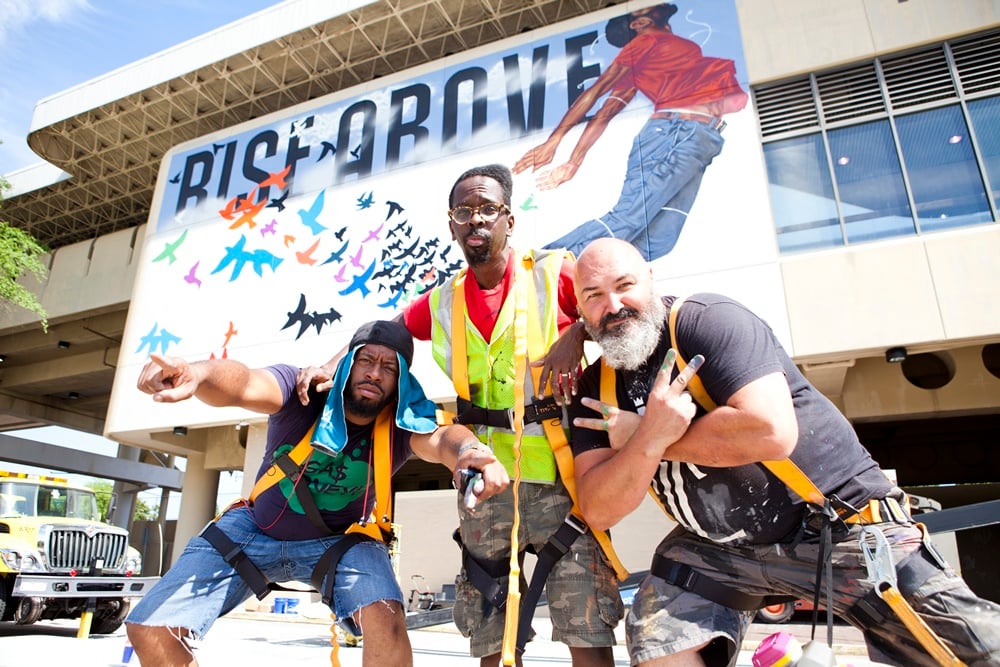
From arts education to a folk festival to a clown conservatory, here are some of the organizations welcoming NEA grants.

Eileen Kinsella &
Caroline Goldstein

It’s not hard to see why so many people in the art world are alarmed at President Donald Trump’s proposal to eliminate the NEA and NEH in his proposed budgets for 2018. As artnet News recently reported, the total amount of money requested to fund the wind-down of these agencies—$71 million—is nearly 25 percent of their total budget last year (just under $300 million). Trump’s proposed 2018 budget, which includes major spending increases for the military and border security and dramatic cuts to domestic programs, totals $4.1 trillion.
Meanwhile, the latest round of announced grant recipients—from arts education and theater groups to a folk festival and clown conservatory—illustrates once again how dynamic, thoughtful, and vast in scope the NEA program is. The current list includes recipients in all 50 states and totals $82.06 million—with direct grants ranging in size from $10,000 to $150,000—and is spread across 1,195 awards. As a small sample of the whole, here are 10 dynamic programs that are receiving grants this year.
1. WonderRoot, Atlanta, Georgia
Grant: $150,000
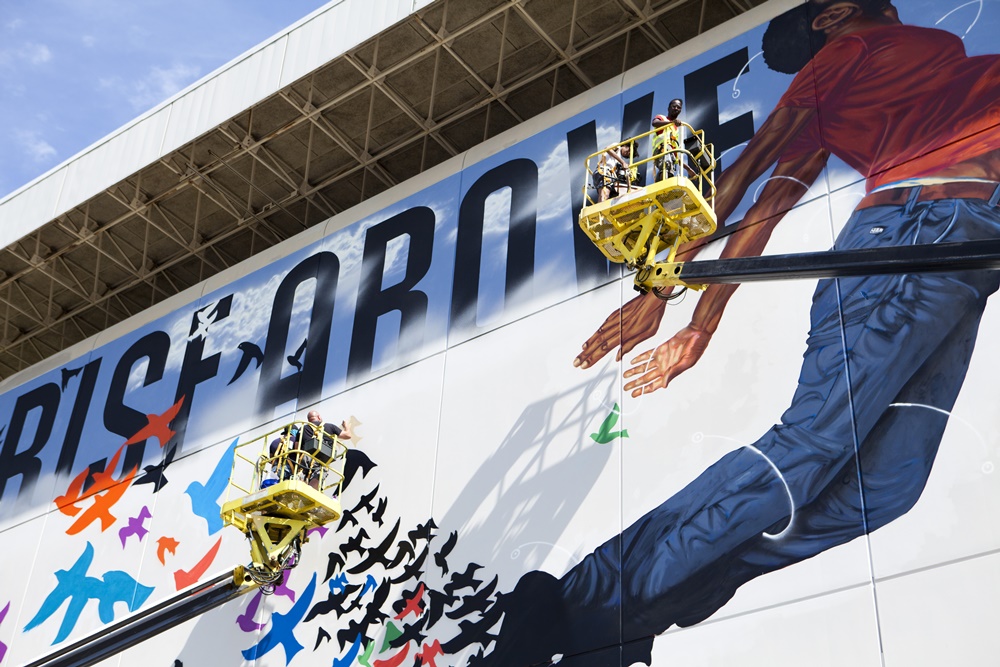
WonderRoot’s En Route mural in progress in Atlanta. Courtesy WonderRoot.
WonderRoot is an arts organization that works to improve the cultural and social landscape of Atlanta. The latest NEA “Our Town” grant is specifically intended for “Embedded (Here),” a community revitalization and beautification project. Through an extensive community engagement process, educational literacy workshops, and storytelling events, a curated collection of community narratives will be integrated by an artist into improved streets, sidewalks, benches, and other neighborhood infrastructure in the Oakland City neighborhood. The previous initiative “En Route,” which included this mural by Fahamu Pecou, also received NEA support.
2. Art Kibbutz, Bronx, New York
Grant: $10,000
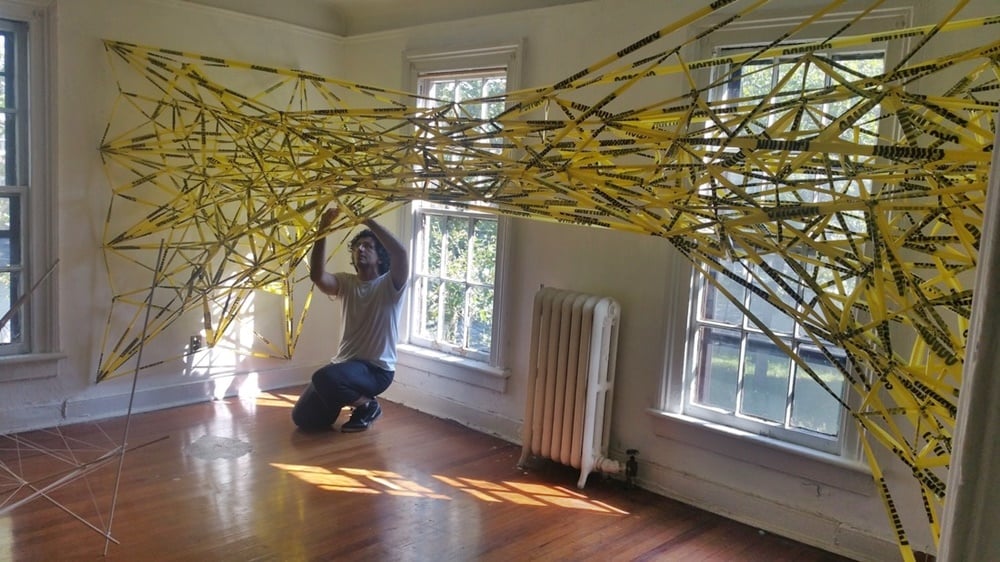
Courtesy Art Kibbutz
Art Kibbutz is a volunteer-run hub that supports a community of artists and creators exploring issues through the lens of Jewish culture. The nonprofit operates two locations—one on New York City’s Governors Island, and another at the Art Students League of New York’s Vytlacil Campus in Sparkill, New York. At both locations, resident artists will interact with local artists, community organizers, creative thinkers, and the general public through dance, music, and theater performances. They will also participate in exhibits, film screenings, and readings.
3. Circus Center, San Francisco, California.
Grant: $10,000
The Circus Center in San Francisco is a training and performing arts center, that offers classes across several disciplines: acrobatics, flying trapeze, aerial, and the Clown Conservatory, which is the specific departmental recipient of this grant. The project that will benefit is a multidisciplinary professional training program in physical comedy, clowning, and vaudeville. The 24-week symposium, taught by master clowns, circus artists, and circus historians, will train professional and professional-track performing artists in narrative clowning, character creation, circus arts, and performance.
4. Black Mountain College Museum and Arts Center, Black Mountain, North Carolina
Grant: $25,000
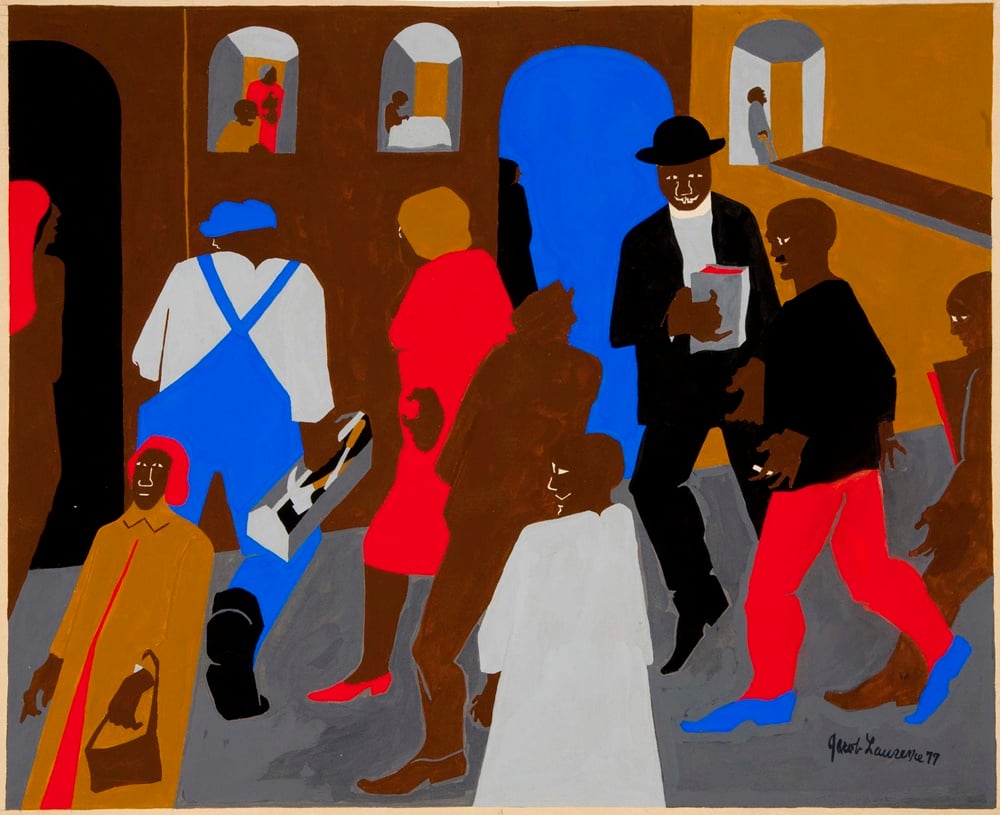
Jacob Lawrence, Windows (1977) Courtesy Black Mountain College Museum + Arts Center collection, gift of Gwendolyn Knight Lawrence.
The Black Mountain College Museum and Arts Center carries on the legacy of the Black Mountain College, one of the foremost innovative platforms for American artists in the 20th century. The Museum and Arts Center is dedicated to continue educating the public, and enhancing the community through collection, conservation, exhibitions, and public programs. This particular grant supports a multidisciplinary exhibition about the pioneering visual artist Jacob Lawrence. The exhibition will focus on the summer of 1946, when Lawrence was invited by Josef Albers to teach painting at Black Mountain College. Among the artworks to be included are a series of Lawrence’s early gouache paintings and a series of photographs of Lawrence at the campus taken by Beaumont and Nancy Newhall.
5. Jungle Theater, Minneapolis, Minnesota
Grant: $15,000
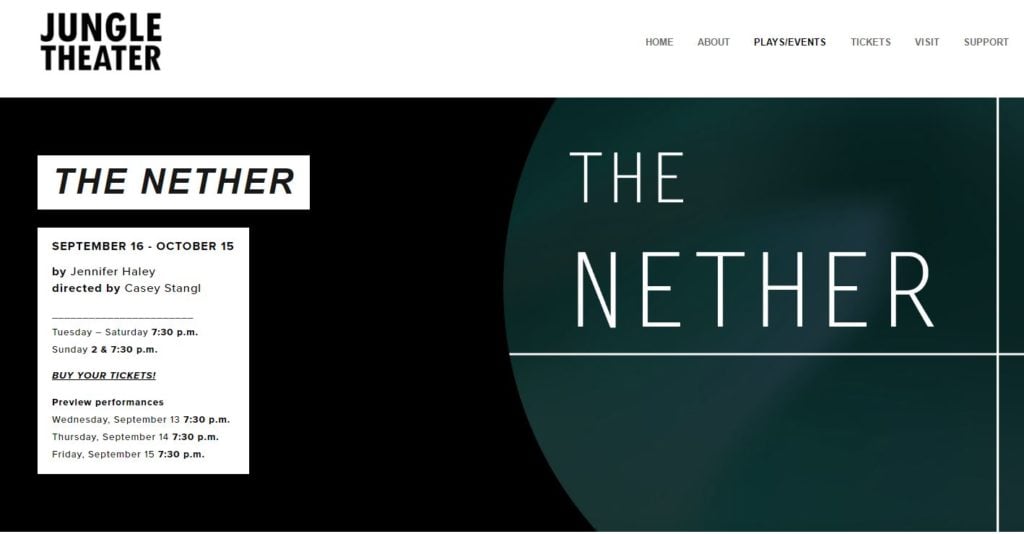
The Jungle Theater is a longtime proponent of “the transformative power of the performing arts,” and hopes to play a vital role in the Lyn-Lake neighborhood’s economic, social and cultural development. The grant will support two upcoming productions: The Nether by Jennifer Haley and Miss Bennet by Lauren Gunderson and Margot Melcon. Haley’s sci-fi crime drama depicts a future network of Internet virtual reality realms offering total freedom and complete sensory immersion. Gunderson and Melcon continue the story of Jane Austen’s classic Pride and Prejudice in which Mary Bennet tires of her role as dutiful middle sister.
6. Regional Arts and Culture Council (RACC), Portland, Oregon
Grant: $30,000
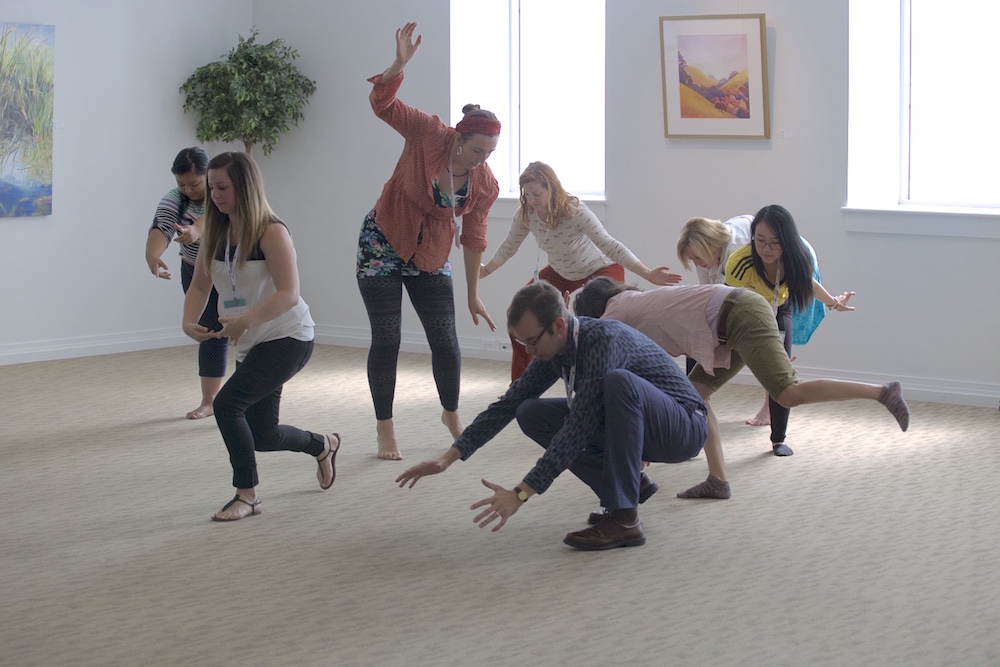
Right Brain educators learn how to integrate creative movement into their classroom curriculum.
Courtesy RACC, Portland, Oregon.
The Regional Arts & Culture Council serves artists, organizations, and schools throughout the Clackamas, Multnomah, and Washington counties, supporting public programming and creative endeavors within the community. The grant supports “The Right Brain Initiative: Fostering Systemic Change and Equity in the Arts.” Classroom teachers, arts specialists, principals, and teaching artists provide strategies to ensure effective arts-integrated learning that is aligned with Common Core State Standards. The Right Brain Initiative aims to broaden access by reaching out to Title I Portland area schools with high free or reduced lunch percentages as well as those in rural communities with limited access to the arts.
7. Queens Museum, Queens, New York
Grant: $150,000
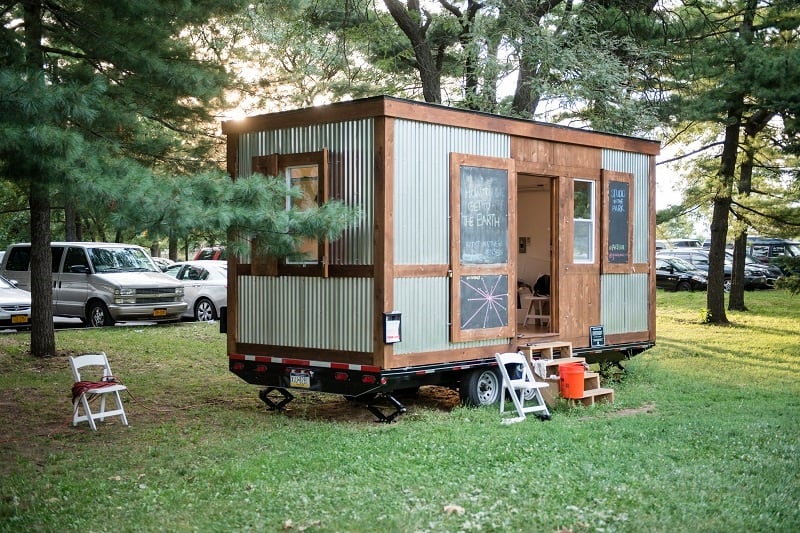
Photo by Guy Buckles. Courtesy Queens Museum.
The Queens Museum is the only New York City institution in the latest NEA funding round to receive the “Our Town” grant, which will be used to support the ArtBuilt Mobile Studio in the Park: Arts and Culture Residencies in New York City Parks, in partnership with ArtBuilt and NYC Parks. The two-year project involves creating mobile artist work spaces and will bring arts and culture programming to New York City parks in under-served communities in each of the five boroughs, including Flushing Meadows Corona Park (Queens), Seward Park (Manhattan), Brower Park (Brooklyn), Faber Park (Staten Island), and Railroad Park (The Bronx).
8. Center for Land Reform, Inc., Flint, Michigan
Grant: $75,000
The mission of the Center for Land Reform is to transform “vacant spaces into vibrant places,” and the Center for Community Progress is dedicated to educating neighborhoods and eradicating systemic blight. The grant will support “A Bridge Between Policy and Placemaking for Vacant Property Revitalization,” a knowledge-building project. The Center for Community Progress will partner with Rebuild Foundation to convene community development and creative placemaking practitioners for two learning exchanges.
9. First Peoples Fund, Rapid City, South Dakota
Grant: $150,000
The First People’s Fund is dedicated to honoring and supporting the spirit of first-peoples artists and culture bearers. The grant will be allocated specifically for a project on the Pine Ridge Reservation, to support the Oglala Lakota Arts and Business Incubator. The project aims to support development for a strong reservation-based creative economy, engaging the native artists who live on the rural Pine Ridge reservation, to promote entrepreneurial and artistic success. The Fund will work in conjunction with the Oglala Sioux Tribe to reinforce a commitment to its current sustainable development plan.
10. Arts for the Aging-Maryland, Inc. (aka AFTA), Rockville, Maryland
Grant: $20,000
The Arts for the Aging was founded in 1986 by scientist, sculptor, and patron Lolo Sarnoff, who founded the nonprofit after teaching an art class at NIH for those suffering from Alzheimer’s disease. Through the Art Works section of NEA grants, AFTA will provide free arts activities throughout the Washington, DC area in up to 26 residential and community care centers. AFTA promotes three seasons of curricular programming that is focused on engaging and energizing older adults to promote cognitive and physical health. The customized arts engagement activities are run by trained artists, and seek to strengthen social bonds, improve and spark memory, and lift the spirits of the aging communities.